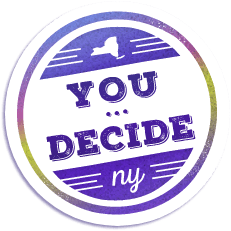Gambling isn’t just something you see in movies or casinos. For a lot of teens, especially Black, Indigenous, and other youth of color (BIPOC), it’s already part of everyday life.
Let’s Be Real
Whether it’s playing cards for money, buying lottery tickets, betting on sports, or even spending money on in-game loot boxes and raffles at school, it’s more common than you think.
In fact, according to a 2022 OASAS survey:
- 23% of students said they gambled at least once in the past year
- 30% said it was easy to get involved in gambling
Additionally, the top ways students gambled were:
- 52% Bingo/Raffles
- 45% Games of Skill (basketball, pool, darts, etc.)
- 41% Lottery
- 37% Card games for money
- 35% Video games with gambling elements
Why Talk About It?
Gambling might seem like a harmless way to pass time or have fun with friends, but it is not harmless for youths. For young people, it can become more serious. Underage gambling can lead to stress, money problems, hiding behavior from family, or even missing out on school or activities.
In many BIPOC communities, gambling is sometimes part of culture or tradition. This can include family card nights, sports betting, or community raffles. Being a part of a culture or tradition doesn’t make it risk-free.
In fact, BIPOC individuals are often at higher risk of gambling-related harm. Gambling related harm can include things like financial stress, anxiety, broken relationships, or changes in behavior, even if someone doesn’t gamble every day or doesn’t think they have a problem. This is why it’s so important to have support systems that are culturally aware, respectful, and made for you.
Support That Gets You
A lot of BIPOC youth don’t reach out for help because of stigma, language barriers, or just not seeing support that feels made for them. But that’s changing. More programs are popping up that understand where you’re coming from. They’re offering help in ways that actually respect your identity, your family, and your community.
You’re not alone, and there are people out there who get it.
You Can Be the Change
Even if you haven’t gambled, chances are someone around you has. Maybe it’s a friend who always talks about betting on sports, or a cousin who spends tons of money on video game skins. Just knowing the signs and being open to talking about it can make a big difference.
Look out for:
- Stress or anxiety about money
- Hiding gambling habits
- Skipping school or responsibilities
- Mood changes after playing or betting
- Borrowing or stealing money
And if that sounds like you? That doesn’t mean you’re broken. It means you’re human—and you deserve support.
This July: Speak Up, Reach Out, Get Real
July is a time to spotlight mental health and problem gambling awareness in BIPOC communities. Whether you’re learning for yourself or trying to help a friend, starting the conversation matters.
- Learn more about the warning signs and risks
- Talk to someone you trust
- Share this info in your group chats, school clubs, or community centers
Safe Spaces
We all deserve safe spaces where we’re respected, understood, and supported without judgment. Gambling harm is real, but so is healing. Let’s look out for each other and be the friends we hope we have by being there to support one another.
Support For Peers
If you find yourself struggling with gambling harm, or if you suspect someone you know is facing such challenges, don’t hesitate to seek help. For 24/7 support, call the NYS OASAS HOPEline at 1-877-846-7369 or text 467369. Or choose your county using our interactive map on our NYProblemGamblingHELP.org HOME PAGE to see the contact information for the Problem Gambling Resource Center (PGRC) in your region.
